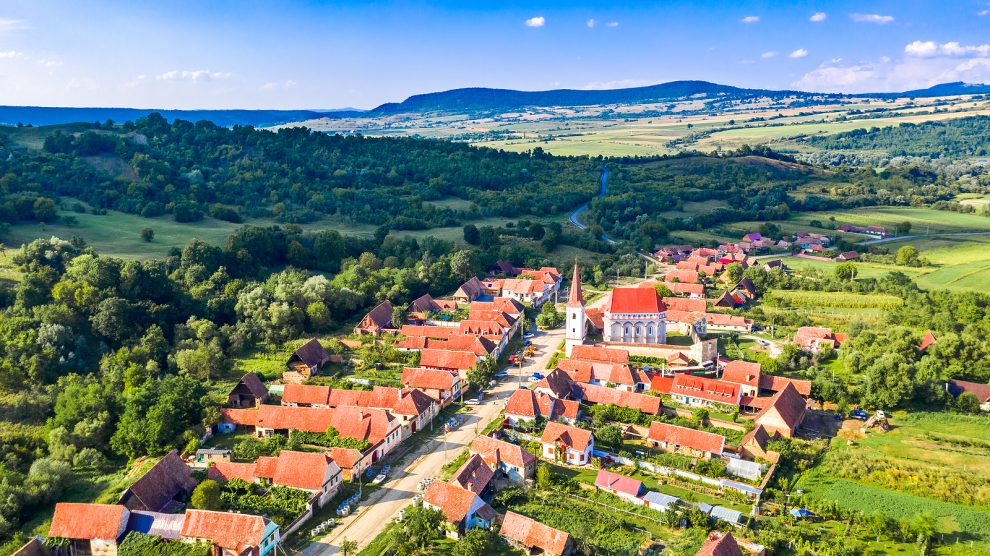Romania looks set to join the growing list of countries offering so-called digital nomad visas to remote workers. Its minimum income requirement, of just over 1,100 euros per month, will make it the most accessible in Central and Eastern Europe.
A draft law currently making its way through Romania’s parliament is looking to position the country as one of the most attractive locations in Central and Eastern Europe for the world’s ever-increasing number of digital nomads.
- In Romania, WWF takes co-working rural
- Romania’s economy outperforms rest of EU in fourth quarter of 2020
- Steaua Bucharest’s 1986 European Cup miracle would be impossible now, but they can at least dream
Long regarded as one of the best places for remote working in the region, thanks to its relatively low cost of living and superfast internet which reaches into even the country’s most remote rural areas, Romania now wants to become a leading destination for digital nomads, and the draft law looks just the ticket.
“We want international citizens to live in and enjoy our beautiful country, where innovation intersects with traditions and nature,” says Diana Buzoianu, a Romanian MP for the progressive USR-Plus party and the initiator of the digital nomad visa programme.
“I believe that the programme will help us build our country brand, becoming a leader in this area,” she adds, also saying that she has pushed for it to be passed as emergency legislation in order to speed up its adoption.
The Covid-19 pandemic has driven a paradigm shift in the way that people work across the globe, with physical location never less important. It has also offered a new opportunity for developing countries to attract money into their economies.
At present in Central and Eastern Europe, Croatia, Estonia and Georgia already offer digital nomad visas, which allow remote workers to live in the respective countries for up to 12 months at a time, usually on the proviso that they do not intend to provide services to firms in their host country.
They also come with a catch: hefty minimum income requirements that freeze out digital nomads on lower incomes.
More accessible than the competition
While Romania’s digital nomad visa will in theory be no different – beneficiaries need to be employed by a foreign firm, or offer services through a self-owned company located outside of Romania – where it does differ is the minimum income requirement, which in the draft legislation is set at the Romanian gross average monthly wage, 5,429 lei, around 1,100 euros.
Currently, the lowest minimum monthly income allowed is in Georgia, which began offering its digital nomad visa last summer as a means of boosting foreign travel to the country after tourism was badly impacted by the Covid-19 pandemic. The country requires its digital nomads to make at least 2,000 US dollars per month, around 1,655 euros.
Estonia, which became the first country in the region to offer a digital nomad visa, just a few months before Georgia, has a much higher minimum income requirement of 3,504 euros. Remote workers in the country do, however, get access to its world-beating e-government infrastructure.
Croatia meanwhile, which launched its digital nomad visa in January, asks digital nomads to make 16,900 kuna per month (around 2,240 euros).
By setting its minimum income requirement at just 1,100 euros, Romania looks to have made a smart move: not all digital nomads are highly-paid IT workers, but all have plenty of disposal income that the country will be glad to see spent within its borders.
“The reason behind that value is that I want to attract people who could also bring resources here, but not limit the visa to just a small percentage of employees or entrepreneurs,” Buzoianu tells Emerging Europe. “The average income in a country is a good criteria related to the average cost of living. I believe that setting the amount in relation with the average income is a way of attracting more digital nomads.”
Unlike many news and information platforms, Emerging Europe is free to read, and always will be. There is no paywall here. We are independent, not affiliated with nor representing any political party or business organisation. We want the very best for emerging Europe, nothing more, nothing less. Your support will help us continue to spread the word about this amazing region.
You can contribute here. Thank you.








[…] Source link […]
[…] Europe’s fastest fixed broadband Internet speeds, Romania is working on a digital nomad visa according to this article. With its low cost of living this country has been on the radar for a while and what looks […]
[…] The draft will modify the Emergency Ordinance no. 194 of the 12th of December, 2002, for the regime of foreigners in Romania. This change will introduce new grounds for third-country nationals to obtain a visa permit in Romania, reports Emerging Europe. […]
[…] Romania’s digital nomad visa might be the most accessible yet […]
[…] Romania’s digital nomad visa might be the most accessible yet […]
[…] 翻译:数字游民指南 || 原文链接:Romania’s digital nomad visa might be the most accessible yet 游民知识 […]
[…] other Eastern European countries, Romania will soon offer a digital nomad visa. With a minimum income requirement of 1,100 euros per month, Romania’s remote working visa might […]
[…] Romania’s digital nomad visa might be the most accessible yet […]
[…] Romania’s digital nomad visa might be the most accessible yet […]
[…] Romania’s digital nomad visa might be the most accessible yet […]
[…] Romania’s digital nomad visa might be the most accessible yet […]
[…] Romania’s digital nomad visa might be the most accessible yet […]
[…] Romania’s digital nomad visa might be the most accessible yet […]
[…] Romania’s digital nomad visa might be the most accessible yet […]
[…] The minimum monthly income requirement might be around EUR 1,100 according to Emerging Europe. […]
[…] the country with the EU’s fastest fixed broadband Internet speeds. Romania has been working on a digital nomad visa for a while. With its low cost of living this country has been on the DN radar and what looks promising are the […]
[…] to make it a reality, and more tangibly than a hypothesised traveller on the beach. This month, Romania looks set to join several other countries offering a new ‘digital nomad visa’ to remote workers. These […]